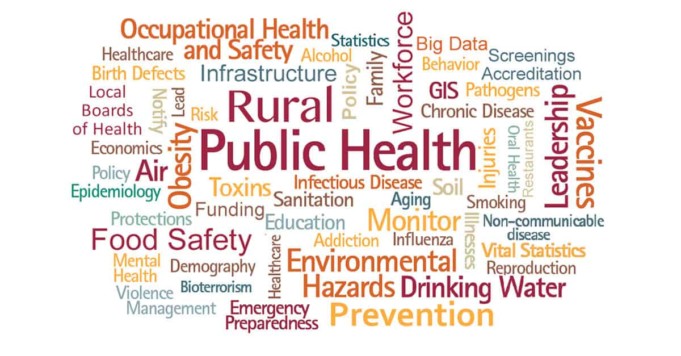Public health is the study and practice of improving and protecting the well-being of society. It involves creating public awareness through community-centered educational approaches.
It starts by understanding the community’s specific needs in the limelight, followed by making policies suitable to that community. Public health also pioneers the study of diseases and preventing the occurrence of injuries.
Professionals who push forth this community-based healthy agenda have a public health degree. Earning a public health degree requires commitment for one to gain perspective knowledge to build on their expertise.
These experts help communities improve their overall health by applying their knowledge to research the spread of diseases so they can prepare communities to develop response mechanisms in emergency times.
Once you have your degree in public health, you can explore a career path that can give you job satisfaction. The field of public health is broad, and you can select one of the available careers that fall in statistics, medicine, and science.
Public Health Research
You can venture into a public health research career with a degree in public health. You will involve yourself in in-depth studies that entail collecting and analyzing critical health issues affecting the public and devising policies to mitigate those issues.
As a researcher, you can create disease prevention strategies from scientific findings that can help protect the society prepare for future challenges.
You have the upper hand in public health research if you like working on detailed investigations in causes and effects models.
As a public health researcher, you can be an environmental specialist, a biostatistician, bioterrorism researcher, tropical disease specialist, or an epidemiologist.
- Biostatistician
A biostatistician public health professional is a researcher both in the government and the private sector. They analyze raw data into meaningful conclusions for policymakers to formulate public health policies.
Their strength lies in using data to predict future trends in health care. Biostatistics career is best for public health professionals who like interacting with figures.
- Occupational And Environmental Health
These are professionals who study the relationships between the environment and public health. They dig into occupational threats like pollution to determine their influence and impact on human health.
Environmental public health professionals help in restoring the serenity of the environment to promote human health.
- Epidemiology
Researchers in epidemiology specialize in studying the roots of diseases, the patterns of spreading alongside other hazards to public health.
Epidemiologists collect and analyze data involving diseases seeking to understand their patterns of spreading. They make inferences to help streamline the efficiency of global medical and clinical practices.
- Bioterrorism Researcher
These researchers study the emergency and chains of biochemical and biological substances as terror weapons. It is among the most contemporary issues threatening nations across the globe.
Bioterrorism Researcher collects and analyzes biological and biochemical substances to determine their likely impact and devise mechanisms to contain them as they could get out of hand.
- Tropical Disease Specialists
Public health professionals who like traveling and spending time research nature fit into this specialization.
They can pursue a career in tropical diseases and become experts. Becoming a tropical diseases expert requires you to add a medical degree to your public health degree. You will work with patients contracting new diseases and spend some time in the lab to research for vaccines.
Your work is to prevent the spread of tropical diseases following a three-step process of monitoring the spread of the diseases, the effectiveness of preventive measures, and creating a sustainable response mechanism.
Public Health Administration
Your work as an administrator is to develop policies and sensitization programs from scientific data, usually from researchers. As an expert, you will turn the conclusions from research into actions to promote community health.
To fit in this area, you need leadership qualities, polish your communication skills, and management expertise with the ability to work in nonprofits, government agencies, and health care organizations.
You can work in health care governance, a coordinator in emergency response teams, public health policy, and management professionals, or a public health analyst.
- Public Health Policy Management
Your role here is to develop creative and influential policies that are easily adaptable to improve the health of communities. Another aspect is strategic planning, the ability to implement strategies and analyze their effectiveness.
- Emergency Response Coordinator
Emergency response coordination involves organizing teams to respond effectively to threats to public health—your craft and guide through the implementation of ideal public safety measures in crisis times.
- Health Care Governance
This is a general term for the framework that organizations become accountable for improving corporate, staff, financial and clinical performance.
This will allow you to pursue a career in healthcare administration with leadership and excellent management skills. As an administrator, you can run a health care facility like clinics, nursing homes, and hospitals.
- Non-Governmental Organization Leader
Individuals passionate in community development, advocacy, and activism can take leading organizations focused on community health issues. They can influence political engagement in community health affairs, which can also lead to human rights activism.
Conclusion
You have a wide variety of careers to pursue a degree in public health. You can venture into public health by becoming a biostatistician, environmental and occupational health, epidemiologist, bioterrorism researcher, and a tropical disease specialist.
Another career option is in public health administration. You can choose public policy management, emergency response coordination, health care governance, and non-governmental organizations.












